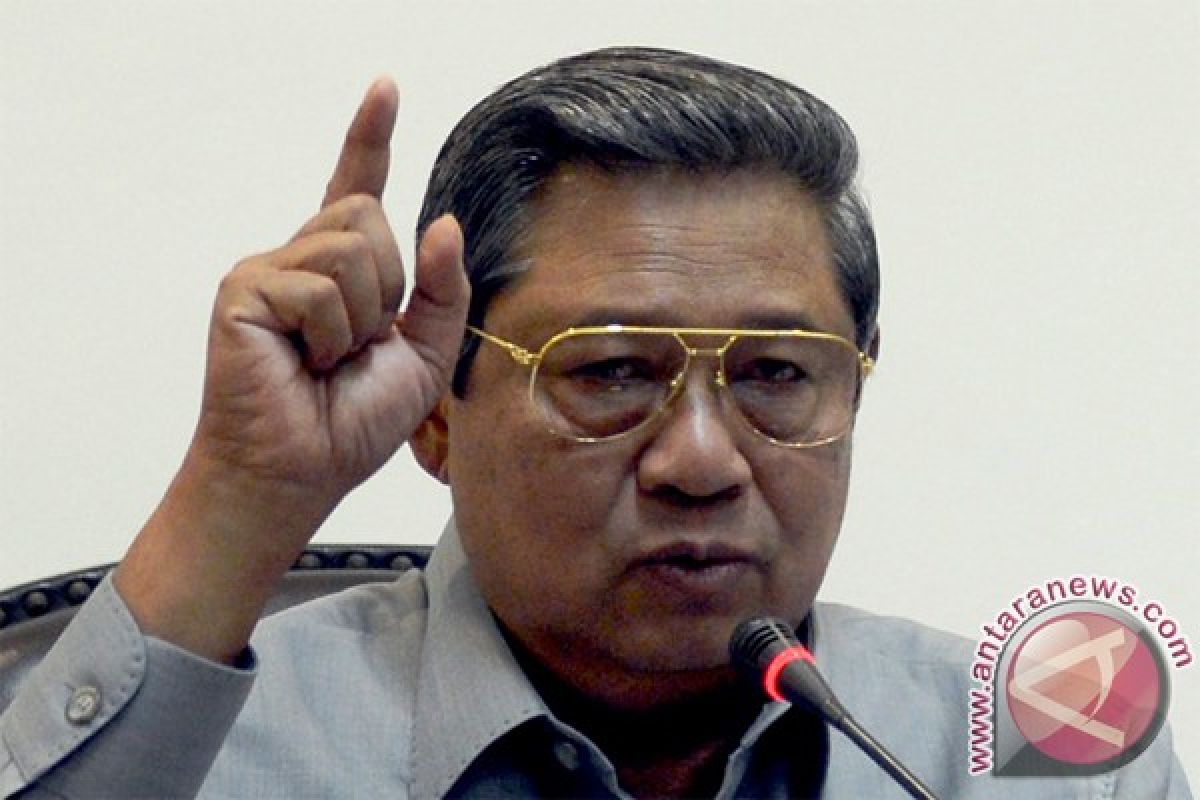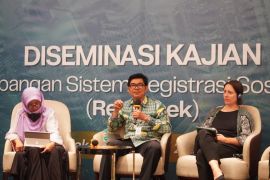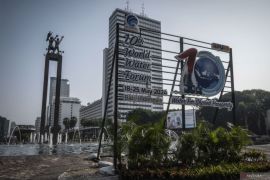"Accurate steps must be taken to ensure that the actual economic growth will not miss the target by much," Yudhoyono said.Jakarta (ANTARA News) - President Susilo Bambang Yudhoyono stated on Friday that the government will pay serious attention to global and regional economic conditions so as to set economic targets in the draft 2014 state budget more cautiously and accurately.
"Accurate steps must be taken to ensure that the actual economic growth will not miss the target by much. We`d better realize that the global economy is still struggling, with negative growth being recorded almost everywhere. Let's not pretend that we don`t know about the possible impact of such conditions on us," he said, when opening a cabinet meeting at the Presidential Office here.
Only by analyzing the existing conditions can the government make accurate economic assumptions, Yudhoyono continued.
"I think we must think and act together to draw up our development plan, whether it be for the government`s work plan or for the state budget," he added.
Earlier in the day, the Central Statistics Agency (BPS) announced that the Indonesian economy in the second quarter of this year expanded 5.81 percent, year-on-year, fueled by household consumption, investment, and exports.
"The economy in the second quarter of 2013 grew 5.81 percent from the same period last year," BPS Chief Suryamin said.
He said the national gross domestic product (GDP) reached Rp2,210.1 trillion, based on the current prices in the second quarter of 2013, and Rp688.9 trillion, based on the constant prices in 2008.
The transportation and communication sector led the national economic growth, contributing 11.46 percent, followed by the financial, real estate and corporate service sector (8.07 percent) and the construction sector (6.88 percent).
"The number of communication users grew rapidly compared with the same period last year," Suryamin pointed out.
He said the electricity, gas and drinking water sector contributed 6.6 percent to the national economic growth, followed by the trade, hotel and restaurant sector (6.47 percent), the manufacturing industry (5.84 percent), the service sector (4.48 percent), and the agricultural, husbandry, forestry and fishery sector (3.2 percent).
"Only the mining and quarrying sector saw its contribution to the second-quarter growth drop by 1.19 percent, compared with last year, due to declining production," Suryamin explained.
The 5.81 percent growth was fueled by household consumption, which grew 5.06 percent, government consumption (2.13 percent), gross fixed capital formation (4.67 percent), exports (4.78 percent), and imports (0.62 percent), he said.
On the expenditure side, the GDP was dominated by household consumption, which grew 55.44 percent, followed by gross fixed capital formation (32.68 percent), exports (23.15 percent), and imports (25.72 percent), Suryamin stated.
Suryamin noted that the trade, hotel and restaurant sector made the biggest contribution to the second-quarter growth, with 1.17 percent, followed by the transportation and communication sector (1.14 percent), the manufacturing industry (1.48 percent), the financial, real estate and financial services sector (0.78 percent), and the construction sector (0.44 percent).
Meanwhile, the service sector contributed 0.42 percent, followed by the agricultural, husbandry, forestry and fishery sector (0.42 percent), the electricity, gas and drinking water sector (0.05 percent), and the mining and quarrying sector (0.09 percent).
Cumulatively, the domestic economy grew 5.92 percent in the first half of this year. The government has set the economic growth target for 2013 at 6.3 percent. (*)
Editor: Heru Purwanto
Copyright © ANTARA 2013












